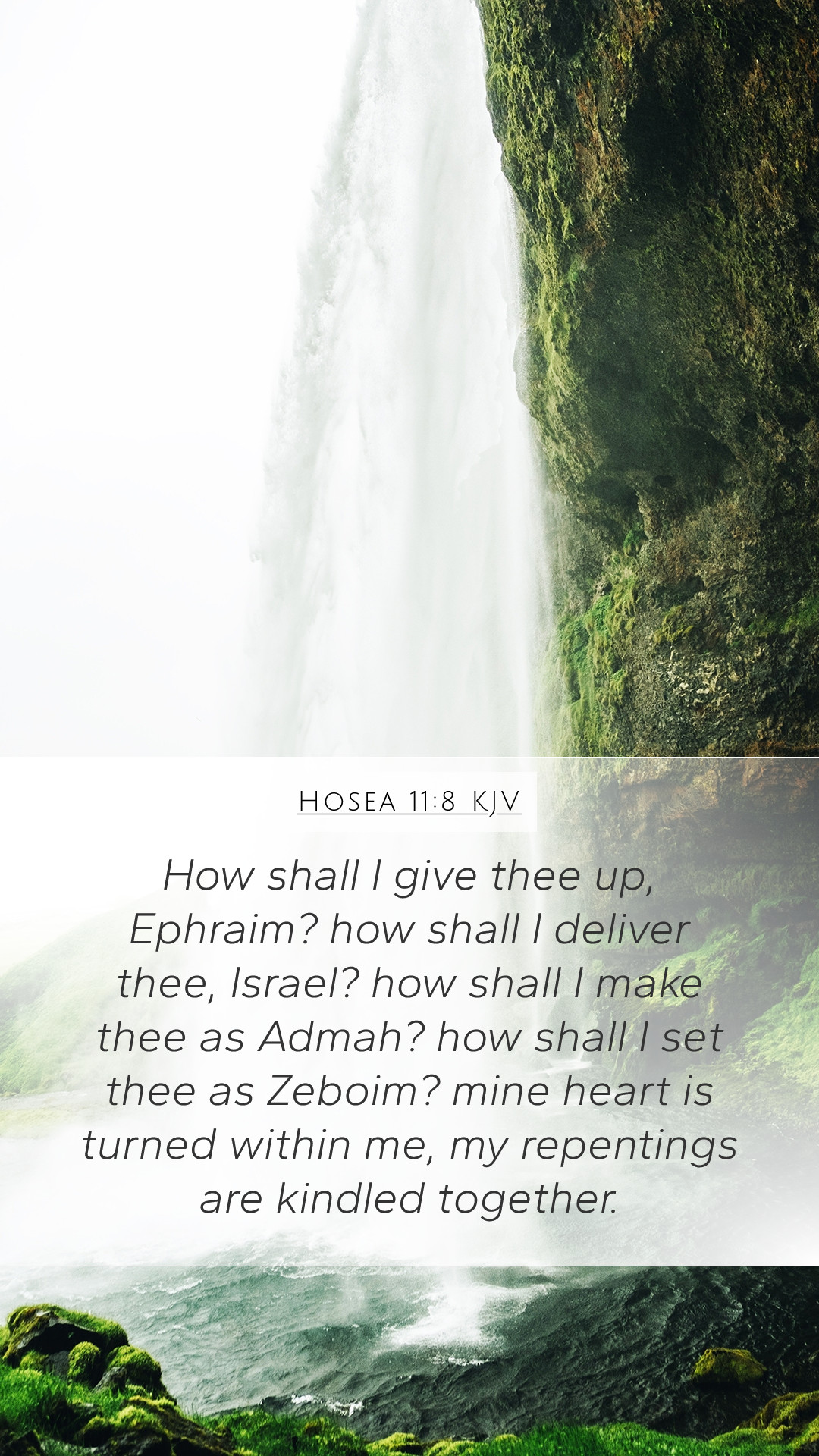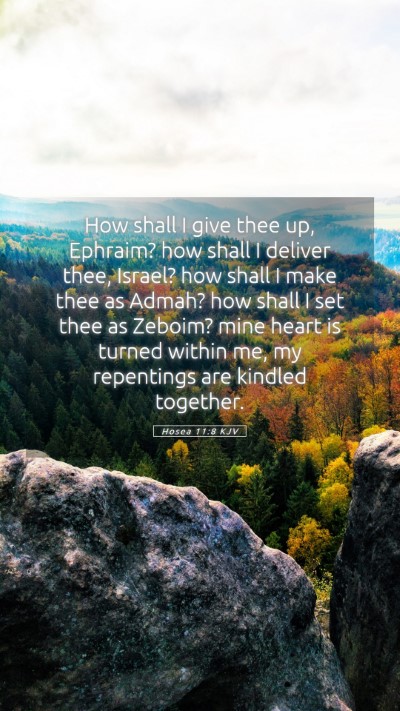Old Testament
Genesis Exodus Leviticus Numbers Deuteronomy Joshua Judges Ruth 1 Samuel 2 Samuel 1 Kings 2 Kings 1 Chronicles 2 Chronicles Ezra Nehemiah Esther Job Psalms Proverbs Ecclesiastes Song of Solomon Isaiah Jeremiah Lamentations Ezekiel Daniel Hosea Joel Amos Obadiah Jonah Micah Nahum Habakkuk Zephaniah Haggai Zechariah MalachiHosea 11:8 Meaning
What is the meaning of Hosea 11:8?
How shall I give thee up, Ephraim? how shall I deliver thee, Israel? how shall I make thee as Admah? how shall I set thee as Zeboim? mine heart is turned within me, my repentings are kindled together.
Hosea 11:8 Bible Verse Meaning
Bible Verse Meaning: Hosea 11:8
Hosea 11:8 is a profound verse in the Old Testament that symbolizes God’s deep emotional connection to His people, Israel. The verse reads:
"How can I give you up, Ephraim? How can I hand you over, Israel? How can I treat you like Admah? How can I make you like Zeboyim? My heart is changed within me; all my compassion is aroused."
Contextual Overview
This verse occurs within a larger narrative in the book of Hosea, where the prophet conveys God’s torment over Israel's unfaithfulness. Hosea was called to prophesy during a time of moral decay in Israel and used vivid imagery to describe the relationship between God and His people.
Interpretation and Meaning
In exploring the bible verse meanings through public domain commentaries, several key themes emerge:
- Divine Love and Compassion: God expresses a difficult dilemma where His justice seems to call for punishment, yet His compassion prevents Him from abandoning even the most sinful. Matthew Henry emphasizes God's enduring love despite Israel’s rebellion.
- Emotion and Heartfelt Connection: Adam Clarke highlights that the phrase "My heart is changed within me" indicates God’s emotional struggle. His judgement is tempered by love and mercy, illustrating the depth of God's feelings towards His people.
- Historical References: The reference to Admah and Zeboyim reminds readers of cities destroyed alongside Sodom and Gomorrah. Albert Barnes notes that these cities stand as an example of divine judgement, yet God’s reluctance to treat Israel like these cities underscores His extraordinary mercy.
- God’s Reluctance to Punish: This also reflects on God's character. God’s longing for reconciliation rather than punishment resonates with the understanding of divine grace and mercy that permeates the entire Bible.
Application of the Verse
In terms of bible verse explanations applicable to daily life, Hosea 11:8 encourages believers to reflect on:
- The profound love that God has for humanity, showcasing that even in times of separation, God yearns for His people to return to Him.
- Understanding that forgiveness is always available, encouraging individuals to cultivate compassion and understanding towards others.
- The importance of faithfulness in relationships, mirroring God's faithfulness to us.
Cross References
This verse can be related to several other biblical passages, enhancing the understanding of God's nature and relationship with humanity:
- Isaiah 49:15-16: God’s compassion for His people is reinforced here, depicting His commitment akin to that of a mother.
- Jeremiah 31:20: Another illustration of God’s deep love and concern for Israel, presenting God as a caring father.
- Ezekiel 18:30: Emphasizes the call to repentance, aligning with the theme of mercy and second chances throughout scripture.
Related Study Topics
For those seeking deeper bible study insights, consider exploring:
- How to interpret Bible verses about divine compassion.
- Understanding difficult Bible passages related to judgement and mercy.
- The significance of Old Testament prophecy interpretations pertaining to Israel.
Conclusion
Understanding Scripture requires a holistic approach, recognizing the emotional depth and theological significance behind verses like Hosea 11:8. Through various bible study resources, individuals can delve deeper into the nature of God's relationship with humanity.


